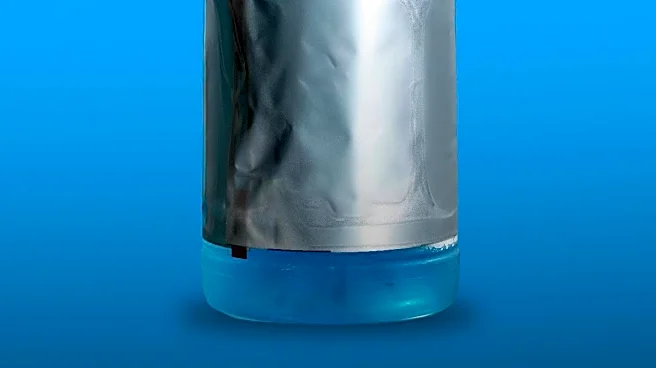What is the story about?
What's Happening?
NPR health correspondent Pien Huang explores the widespread consumer belief in the necessity of sports drinks and electrolyte tablets for effective hydration. The U.S. market for these products is substantial, with consumers spending over $10 billion annually, according to Beverage Industry. The investigation questions whether the average person sweats enough to require these sugary, electrolyte-filled drinks, especially during hot summer months. The report aims to provide clarity on whether these products are essential for daily hydration or if they are simply appealing due to marketing strategies.
Why It's Important?
The significance of this investigation lies in its potential impact on consumer health and spending habits. If the findings suggest that extra electrolytes are not necessary for most people, it could lead to a shift in consumer behavior, reducing the demand for sports drinks and similar products. This could affect the beverage industry economically, prompting companies to reconsider their marketing strategies. Additionally, it could lead to increased awareness about healthier hydration practices, influencing public health positively by encouraging consumers to opt for water or less sugary alternatives.
What's Next?
The report may prompt further research into hydration needs and the effectiveness of sports drinks. Stakeholders such as health professionals, consumer advocacy groups, and beverage companies might respond with their own studies or campaigns. There could be discussions on regulatory measures regarding the marketing of sports drinks, especially if they are found to be unnecessary for most consumers. Public health campaigns might emerge to educate consumers on proper hydration techniques without relying on sugary drinks.
Beyond the Headlines
This investigation could spark broader discussions on the ethics of marketing health-related products. It raises questions about consumer protection and the responsibility of companies to provide accurate information about their products. The cultural perception of sports drinks as essential for hydration might be challenged, leading to a shift in how these products are viewed and consumed. Long-term, this could influence the beverage industry's approach to product development and marketing.

















